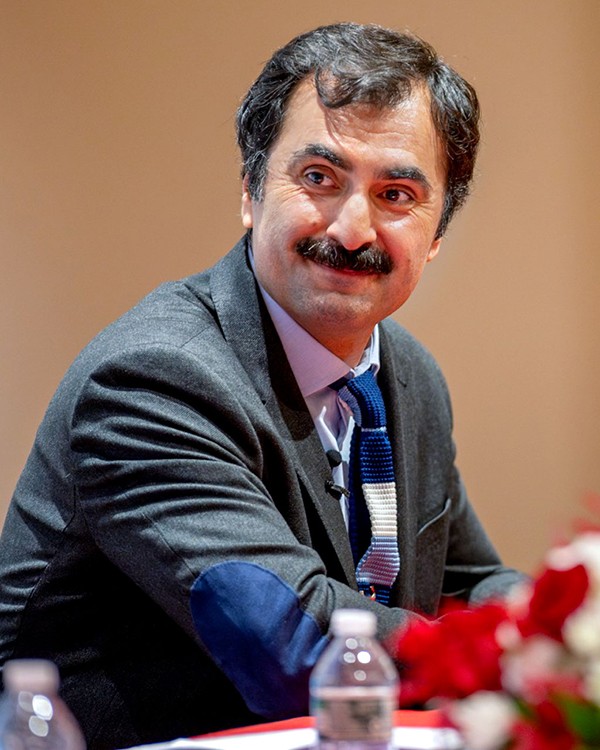The Hon Greg Hunt MP
Minister for Health and Aged Care
The Morrison Government has launched a ten-year plan to increase the Aboriginal and Torres Strait Islander health workforce and improve health and wellbeing outcomes.
The National Aboriginal and Torres Strait Islander Health Workforce Strategic Framework and Implementation Plan 2021-2031 (National Workforce Plan) was released today by the Minister for Health, Greg Hunt, and the Minister for Indigenous Australians, Ken Wyatt.
The National Workforce Plan is the first of its kind. It seeks to have Aboriginal and Torres Strait Islander people equally represented alongside non-Indigenous workers across the health sector by 2031.
It will mean an unprecedented increase in the number of Aboriginal and Torres Strait Islander doctors, nurses, midwives, allied health professionals, health workers and health practitioners working across the health system through the next decade, providing culturally safe and responsive health and medical care.
The plan aims to lift the rate of Aboriginal and Torres Strait Islander people working in the sector from the current 1.8 per cent to 3.43 per cent by 2031, better reflecting overall population numbers.
The plan has been designed in close partnership with Aboriginal and Torres Strait Islander people, including health leaders from Aboriginal and Torres Strait Islander peak bodies and the community-controlled health sector.
It commits all governments to work with Aboriginal and Torres Strait Islander people to grow and strengthen the workforce through a consistent, yet flexible, approach to increasing employment, training and leadership opportunities.
Under the plan, a wide range of actions will be implemented at a national, state and territory, and regional level across the health system. These will attract, recruit and retain Aboriginal and Torres Strait Islander people across all roles, levels and locations. Structural, systemic, organisational and personal barriers to growing and retaining a skilled workforce will be removed. There will be clear pathways for health students.
“The National Workforce Plan sets an ambitious and achievable, target,” Minister Hunt said.
Authorised by Greg Hunt MP, Liberal Party of Australia, Somerville, Victoria.
“Not only will it expand access to culturally safe care and significantly improve the health outcomes of Aboriginal and Torres Strait Islander people, it will also increase economic prosperity by having First Nations people in well paid, secure employment.”
To help implement the plan, the Morrison Government has committed $53.1 million from 2022-23 to 2025-26.
This includes $11.9 million for the Australian Indigenous Doctors’ Association, $12.7 million for the Congress of Aboriginal and Torres Strait Islander Nurses and Midwives, $18.9 million for Indigenous Allied Health Australia and $9.3 million for the National Association of Aboriginal and Torres Strait Islander Health Workers and Practitioners. $0.3 million in support for the National Health Leadership Forum (NHLF).
This investment builds on the $159.1 million committed since 2021-22 to support the Aboriginal and Torres Strait Islander health workforce.
The National Workforce Plan complements the 2020 National Agreement on Closing the Gap and the refreshed National Aboriginal and Torres Strait Islander Health Plan. Like them, it encompasses an approach that acknowledges Aboriginal and Torres Strait Islander leadership is fundamental to drive real action and change to achieve its vision.
“One of the most important features of this National Workforce Plan is that it was developed by Aboriginal and Torres Strait Islander people, for Aboriginal and Torres Strait Islander people,” Minister Hunt said.
Minister for Indigenous Australians, Ken Wyatt, said the National Workforce Plan is a strong example of governments working in partnership with the Aboriginal and Torres Strait Islander community-controlled sector and communities so that policy and action are designed and delivered by those who understand community best.
“Growing Aboriginal and Torres Strait Islander workforce participation across the health sector will help ensure culturally-safe, trauma-informed and responsive care is available for families and communities,” Minister Wyatt said.
“It will mean Aboriginal and Torres Strait Islander people feel more comfortable to access health services and experience better outcomes when they do.
“Increasing employment, training and leadership opportunities for Aboriginal and Torres Strait Islander people, and embedding Indigenous knowledge and culture in our health services, will help deliver prevention-focused health services that are free of racism.”
Ministers Hunt and Wyatt thanked state and territory ministers, and the Aboriginal Community Controlled Health Sector, for their continued commitment to the plan.
NHLF Chair, Donna Murray, said: “A strong and empowered Aboriginal and Torres Strait Islander health workforce is central to improving our health outcomes.
“The Aboriginal and Torres Strait Islander health workforce brings culturally safe perspectives and practices into a western biomedical focused health system. Culture is a protective factor – a positive determinant of health – that strengthens our identity, and our connection to community and Country.
“We are committed to achieving health equity, and we draw strength from cultural integrity, and Aboriginal and Torres Strait Islander ways of knowing, being and doing. The NHLF welcomes the release of the National Workforce Plan and look forward to continuing to work in partnership with governments to develop the Monitoring and Evaluation Framework.”







